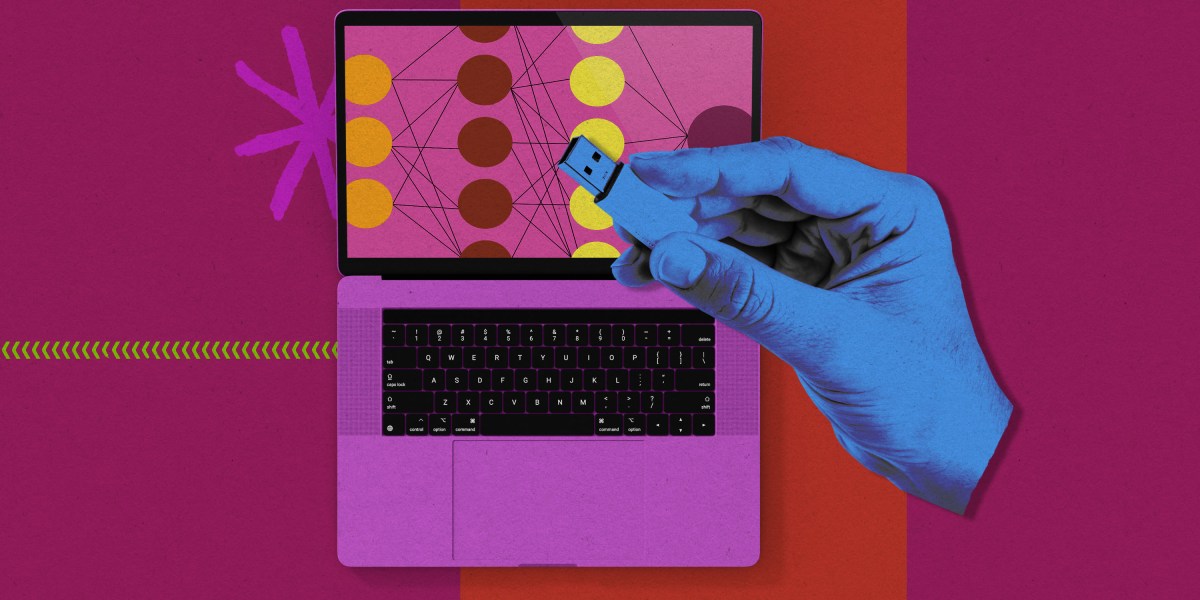OpenAI isn’t letting the delay of its open source AI model slow it down on shipping other features.
Today, the company is unveiling ChatGPT agent, a feature that allows its AI chatbot to autonomously browse the web, conduct extensive research, download and create new files for its human users using its own virtual computer.
Come again? ChatGPT now gets its own PC? And it can use that PC to log into your, the human user’s, accounts and download or send stuff for you?
That’s correct, at least in a virtual sense, according to OpenAI. As the company explains:
The AI Impact Series Returns to San Francisco – August 5
The next phase of AI is here – are you ready? Join leaders from Block, GSK, and SAP for an exclusive look at how autonomous agents are reshaping enterprise workflows – from real-time decision-making to end-to-end automation.
Secure your spot now – space is limited: https://bit.ly/3GuuPLF
“The model can choose to open a page using the text browser or visual browser, download a file from the web, manipulate it by running a command in the terminal, and then view the output back in the visual browser. The model adapts its approach to carry out tasks with speed, accuracy, and efficiency.”
Users can engage the agent by clicking on the dropdown at the top of the ChatGPT website and selecting ‘agent mode.’
Then, when it’s turned on describe a task in plain language, and the agent can carry it out across web and app environments, combining reasoning with actions that previously only a human user could perform on their own machine, manually.
ChatGPT agent can connect to apps like your personal or business Gmail and GitHub, so it can pull in useful information — emails or code — from your accounts to help with tasks you ask it to do.
If a website needs you to log in, you can do that securely through a special browser view, which lets the agent dig deeper and handle more personalized tasks, like checking your inbox or filling out forms on your behalf.
The new ChatGPT agent builds upon and expands from the “Operator” agent OpenAI released in January 2025, which allowed ChatGPT to browse the web and fill out forms, place orders, and do other web-based tasks in a private “headless browser,” that is, a cloud-based custom web browser that OpenAI itself maintained and offered for each Operator session.
However, Operator was limited only to interacting with websites and web-based applications — not programs that could also run locally on a PC, such as spreadsheet tabulators and slide deck presentation making software.
The new ChatGPT agent can browse websites, interact with online forms, run code, analyze data, and deliver finished outputs — such as editable presentations or spreadsheets — based entirely on user instructions.
Merging Operator and Deep Research into one agent
In fact, OpenAI positions ChatGPT agent as a merging of two of its prior agents — Operator and Deep Research, the latter introduced in February 2025. As OpenAI writes in a blog post:
“Operator couldn’t dive deep into analysis or write detailed reports, and deep research couldn’t interact with websites to refine results or access content requiring user authentication. In fact, we saw that many queries users attempted with Operator were actually better suited for deep research, so we brought the best of both together.”
The previous Operator tool will be phased out, but users can still access Deep Research via the dropdown in the ChatGPT interface.
The unveiling comes on the heels of a report published days ago by independent subscription tech industry website The Information suggesting that OpenAI would upgrade ChatGPT to be a more direct competitor to its own investor Microsoft’s Office software applications (e.g. Excel, Word, PowerPoint, etc.)
Whether using a visual browser to interact with a website or a terminal to run Python code, the agent moves seamlessly between tools within a single session.
It supports a broad range of use cases, from analyzing competitors and generating reports to planning trips, summarizing emails, or booking appointments.
Users can interrupt, redirect, or pause a task at any time, with the agent picking up right where it left off.
Availability and access
Starting today, subscribers to ChatGPT’s $200-per-month “Pro” tier will have full access to ChatGPT agent, with a monthly quota of 400 messages.
ChatGPT Plus ($20 per month) and Team ($30 per month) will gain access over the next few days, with 40 messages per month. Additional usage is available through credit-based options.
OpenAI said in a release shared with VentureBeat under embargo that its ChatGPT Enterprise and Education subscribers will gain access to the feature the coming weeks.
For now, the feature is not yet available in Europe or Switzerland, no doubt disappointing residents there.
Built with safety and control at the forefront
Given that the agent can now take actions on behalf of users — including on logged-in websites or with connected apps — OpenAI has introduced extensive safety measures.
These include user confirmations before taking action, active supervision for sensitive tasks, and technical safeguards to limit unintended behavior.
Key protections include:
- Confirmation prompts before actions like submitting forms or sending emails
- Watch Mode, which pauses execution when a user becomes inactive
- Refusal of high-risk tasks, such as financial transfers or privacy violations
- No memory retention during agent sessions
High-risk domain classification
In line with its Preparedness Framework, OpenAI is treating ChatGPT agent as a High capability system in the biological and chemical domains.
While there is no direct evidence of misuse, the company is activating its strongest safety safeguards out of caution.
These include enhanced refusal training, red teaming by biosafety experts, and improved detection systems.
Recall that Anthropic‘s recent information released about its new Claude Opus 4, and other surveys of advanced AI models, have shown that when given access to external tools and applications such as email, they can in some cases take actions they believe to be moral and ethical but that may compromise the user, such as emailing government agencies or journalists of suspected wrongdoing on the part of the user.
The model thinks it is acting like a “whistleblower” but in fact, may compromise user privacy, security, and proprietary information and alert authorities to wrongdoing where there is none, or where it is dubious.
Strong performance on real-world tasks
ChatGPT agent isn’t just more capable in theory—it has delivered strong results across a number of benchmarks designed to simulate real-world knowledge work. It set a new high score on Humanity’s Last Exam with a 44.4 using parallel rollout methods, and achieved 27.4% on the difficult FrontierMath benchmark.

On SpreadsheetBench, it scored 45.5%—more than doubling Copilot in Excel’s performance.
Current limitations and next steps
Some features, like slideshow generation, are still in beta and may feel basic in formatting or differ slightly between in-app previews and exported files.
OpenAI is actively training the next iteration of this feature to improve polish and layout.
The launch of ChatGPT agent signals a shift in how users interact with AI—from asking questions to assigning complete tasks.
With its ability to reason, act, and produce deliverables, OpenAI is betting that users increasingly want AI not just to assist them, but to work for them. While the company emphasizes that the agent is still evolving, it sees this launch as the foundation for a more interactive, action-oriented future for AI.
Daily insights on business use cases with VB Daily
If you want to impress your boss, VB Daily has you covered. We give you the inside scoop on what companies are doing with generative AI, from regulatory shifts to practical deployments, so you can share insights for maximum ROI.
Read our Privacy Policy
Thanks for subscribing. Check out more VB newsletters here.
An error occured.




















